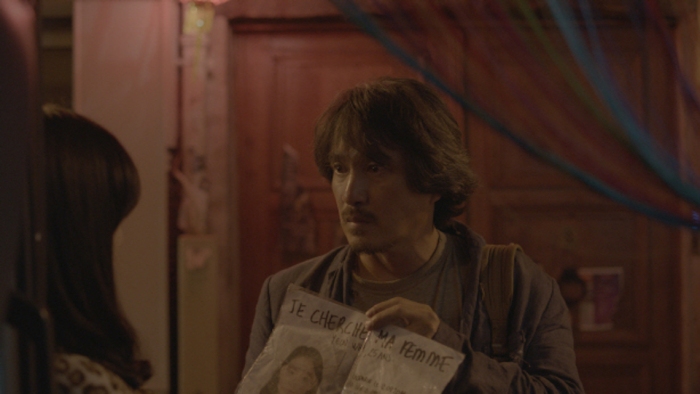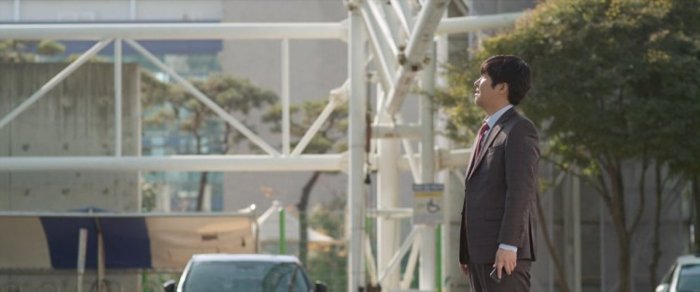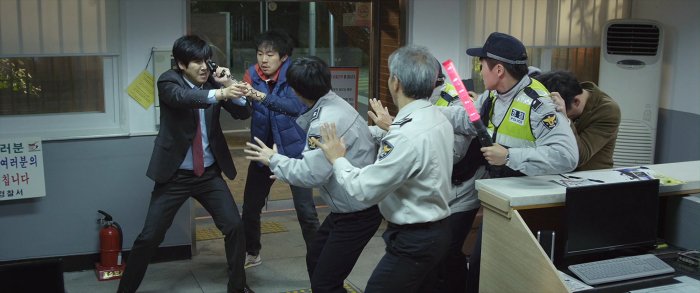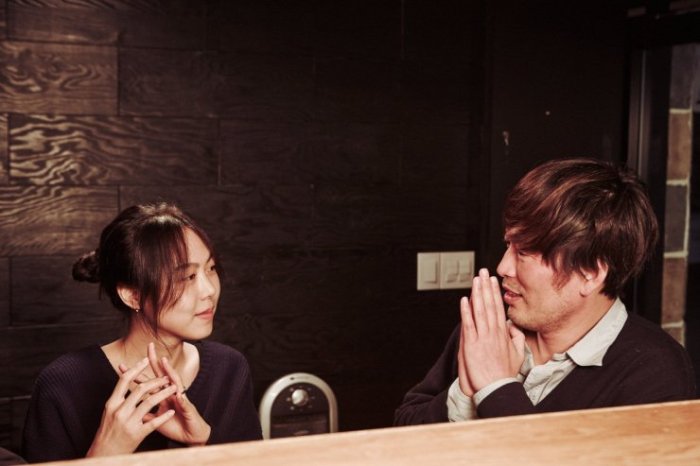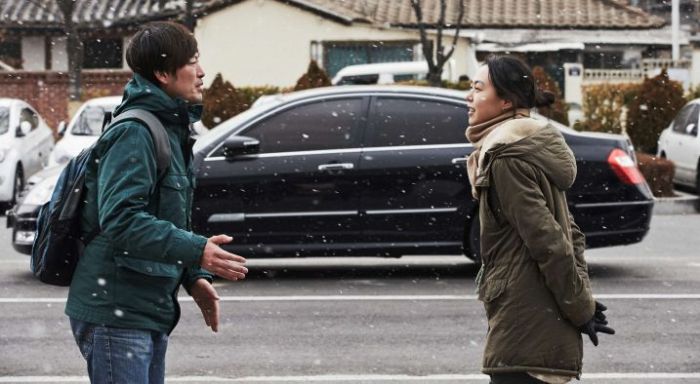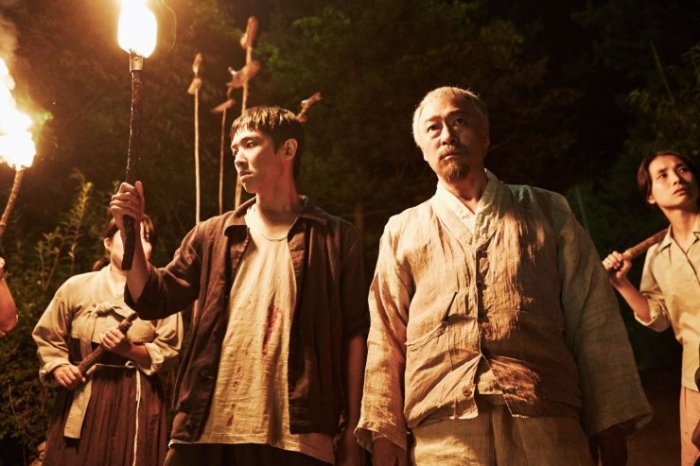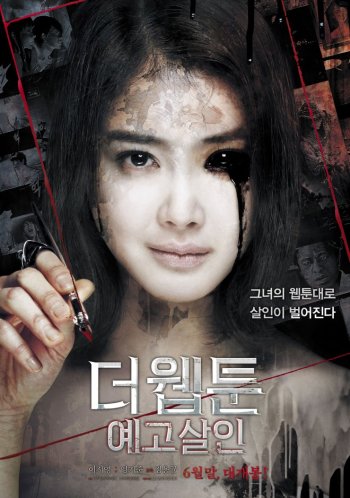At a private academy in the city, cleaning lady Sun (Jang Sun (장선) is reprimanded by her boss for inappropriate sexual conduct with other employees. Bizarrely however, she finds the situation humorous and continues with her work, conveying a psychological instability that worries her colleagues. Also at the academy is teacher Mr. Kim (Kim Kwon-hoo (김권후), whose eccentric behaviour also baffles those around him. Unable to communicate their distresses with the world, Sun and Mr. Kim decide to take a trip together, but can they truly express themselves or simply live with lies?
After beginning in gripping fashion, director Lee Seung-won’s debut Communication & Lies enters a downward spiral through an incredibly confused narrative structure and misogyny masquerading as psychological insight. While the film does well in portraying how those suffering from psychological instability go largely ignored in contemporary Korean society, the story fails to build empathy with the protagonists by focusing primarily on their hysteria.
Communication and Lies begins with a captivating eight minute long take, as Sun is scolded by her manager for her recent conduct. It’s a brilliantly written scene, with information gently teased out through the conversation that slowly reveals the reason for Sun’s admonishment, while her truthfulness and odd reactions highlight her instability through dark humour. The manner in which the discourse unfolds is gripping, particularly for those familiar with Korean culture who expect the conversation to play out in a certain fashion, with the scene wonderfully subverting cultural norms.
Yet from such a fascinating opening the film dramatically loses momentum through a frustratingly haphazard narrative structure. The film shifts focus to introduce the less-interesting Mr. Kim and his eccentricities, while building his relationship with Sun towards their trip. Mr. Kim simply isn’t as compelling as his female counterpart, a fact which director Lee appears to be aware of hence the somewhat belated inclusion of flashbacks that dart back and forth through their timelines in a bid to generate mystery by slowly revealing the traumas that inspired their neuroses. It’s a noble but often confusing endeavour, as the story jumps to various points of the character’s lives in the past three years and attempts to address the origins of their mental illnesses, yet there isn’t significant enough depth to generate the required empathy. This is acutely the case with Mr. Lee whose tangent is rather bland, and the film would have benefited greatly from having Sun as the sole lead.
Furthermore, the exploration of Sun’s psychological instability is acutely misogynistic. As a result of personal trauma, Sun dehumanises herself with various sexual acts, yet there is no examination given as to why her illness has developed in this fashion and as such sequences that are intended as explore Sun’s tendency to sexually humiliate herself are often instead merely perverse male fantasies, with beatings, foul language, and orifice-fascination featuring at various points. The character has great potential that is unfortunately not realised throughout the film’s 103 minute running time, though actress Jang Sun performs the role capably.
Verdict:
Though beginning in gripping fashion, director Lee Seung-won’s Communication & Lies loses impetus through a frustratingly haphazard and oft-confusing narrative structure. Though nobly attempting to allude to the origins of neuroses and the general ignorance within contemporary Korea, the film instead conforms to a misogynistic male fantasy masquerading as psychological insight.
★☆☆☆☆















